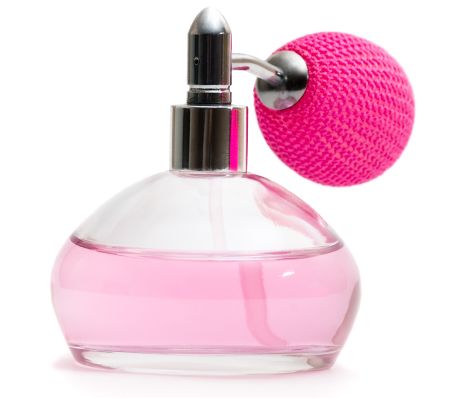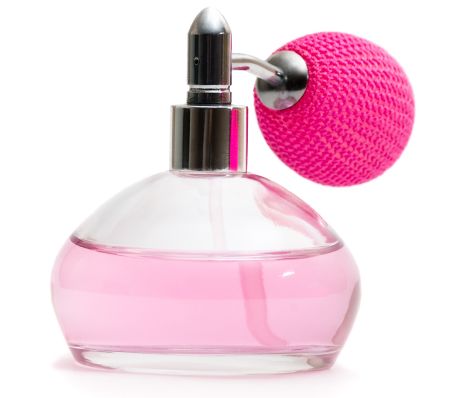Send your question to Umbra!
Q. Dear Umbra,
I am a child of the consumer age, but I try to live by “reuse, recycle.” I have a lot of fancy perfume bottles that are now empty. They are very heavy glass, and it seems I read that the return on the energy spent to melt them down is not worth recycling them. Can you solve this conundrum?
Patricia M.
Seattle, Wash.
A. Dearest Patricia,
How fancy are we talking? Antiques Road Show fancy? How I would delight in watching one of my readers discover that her glass bottle was in fact a René Lalique bouchons mures bottle circa 1923. Assuming my PBS fantasy is just that (sigh), I’ll guess that your bottles are more contemporary.
First things first: It’s definitely worth it to recycle glass. As we’ve discussed, recycling always wins. Glass doesn’t biodegrade, so we don’t want it in our landfills. And glass recycling actually saves energy compared with using new materials: crushed glass (known as cullet) melts at a lower temperature than virgin ingredients like sand. Perhaps it’ll also ease your mind to know that glass containers produced today are 40 percent lighter than they were 20 years ago, making recycling even less energy-intensive. Your heaviest perfume bottle is probably still lighter than your mother’s were.
 However, there’s a pesky catch here: the pumps. I did a little hands-on research at a fragrance counter (perhaps to the chagrin of the salespeople and my sinuses), and sniffed out several different set-ups. Some of the pumps are screw-on, which means you could easily detach the top and refill or recycle the bottle (per my usual advice, check with your local authorities as to whether they’ll accept it). Some without pumps have those dainty little stoppers that pop right out, making for an easy refill or recycle. And then there are the pumps that neither screw off or pop out; after trying it myself, I cannot endorse attempts to pry the pumps off, for fear of ending up with your blood on my hands (a damned spot that even the best NPE-free detergent can’t oust). Instead, perhaps try channeling Martha Stewart by arranging those fancy glass bottles together on a windowsill or bathroom counter for some cheap and easy recycled décor.
However, there’s a pesky catch here: the pumps. I did a little hands-on research at a fragrance counter (perhaps to the chagrin of the salespeople and my sinuses), and sniffed out several different set-ups. Some of the pumps are screw-on, which means you could easily detach the top and refill or recycle the bottle (per my usual advice, check with your local authorities as to whether they’ll accept it). Some without pumps have those dainty little stoppers that pop right out, making for an easy refill or recycle. And then there are the pumps that neither screw off or pop out; after trying it myself, I cannot endorse attempts to pry the pumps off, for fear of ending up with your blood on my hands (a damned spot that even the best NPE-free detergent can’t oust). Instead, perhaps try channeling Martha Stewart by arranging those fancy glass bottles together on a windowsill or bathroom counter for some cheap and easy recycled décor.
Also, while the nearest locale for you, Patricia, is in Portland, all spritzing readers should know: New York perfumer Bond No. 9 and Saks Fifth Avenue have a take-back program that accepts all perfume bottles for refurbishing and refilling or recycling.
In the future, you might avoid perfume purchases altogether if you truly want to avoid the bottle conundrum (and the toxic risks hidden in so many of our cosmetics). I think you smell just fine from here.
Sniffily,
Umbra
Q. Dear Umbra,
After reading your article about ways to store food without using plastic, I started to wonder if wax paper is recyclable. I know that you can’t recycle things with food waste on them, but what about a gently used piece of wax paper?
Crinkle-y,
Ariel
Boston, Mass.
A. Dearest Ariel,
Thanks for the lovely little stroll down Ask Umbra archive lane.
While I generally avoid the “Can I recycle this specific item?” dilemma — only your local recycling program can tell you for sure — I can say that, food stains or not, wax paper contains a generally unrecyclable culprit: wax, which is made from oil. Recovered fiber from regular paper is shredded and mixed with water to make pulp. But in the case of wax paper, oil and water mix about as well as, um, oil and water.
That said, how gently has the wax paper been used? If it’s just looking a little crumb-ridden, by all means, wipe it down and reuse away. Or there could be some DIY-ing in your used wax paper’s future: perhaps a pressed-leaves placemat, book binding repair, or a stained glass butterfly.
Craftily,
Umbra
Q. Hi Umbra,
I just read your response on water bottles and liked the part at the end where you asked the reader if he really needs to buy a water bottle at all. If he does need to tote liquids around (I do), what do you think of this solution environmentally: I tote my water around in the glass jars that pasta sauce, peanut butter, jelly, or olives came in. After using up the product, I just wash them out, and they are a sparkling new water bottle. Most cafes will even fill them up if you stop for a smoothie. My boyfriend even uses these jars for buying hot coffee from cafés. I think this is a little hot to handle, but he swears it’s fine.
Erin
Sacramento, Calif.
A. Dearest Erin,
I like the cut of your jib. And props to your boyfriend for braving the potential for blisters in the name of reuse. Any other ideas for alternative beverage containers out there? Let me know in the comments section.
Hydratedly,
Umbra



